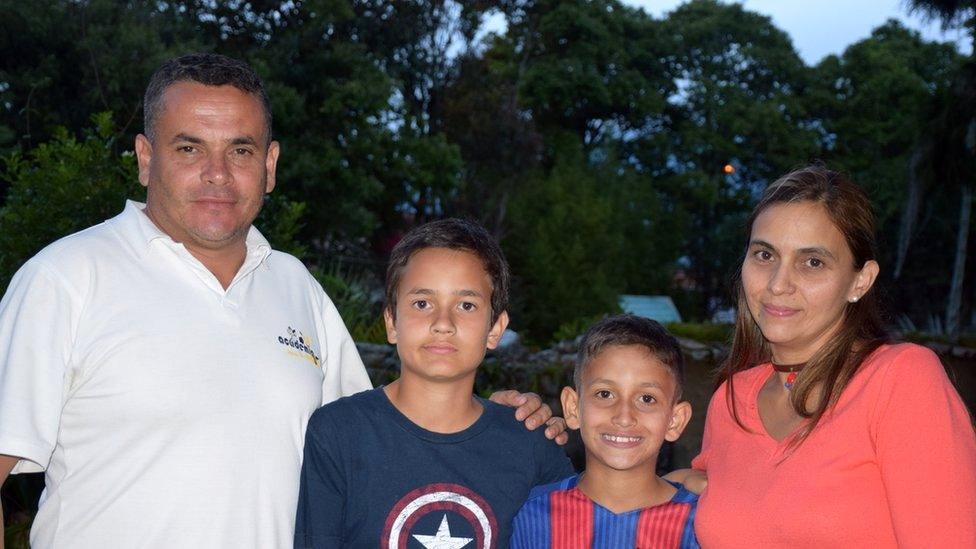Apathy to activism: Venezuelan students on why they protest
- Published
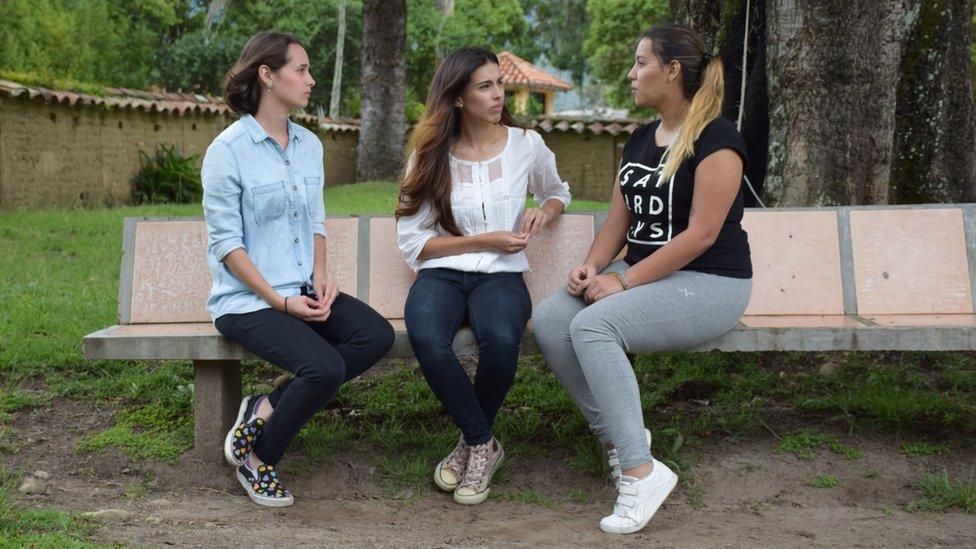
Ingeborg Paris (left), Gabriela Sayago (centre) and Paola Carmona (right) are determined to stay in Venezuela
Gabriela Sayago, Paola Carmona and Ingeborg Paris are 24 years old. All three are studying dentistry at the University of the Andes in Mérida.
Like many young students in their last years at university, they cannot wait to finish and start working.
But Gabriela, Paola and Ingeborg are students in Venezuela, a country engulfed in a worsening political and economic crisis that has led to severe shortages of food and basic goods.
Arguably the worst shortages are those of medication, with the Venezuelan Pharmaceutical Federation reporting that only 15% of medicines are readily available.

Read more:
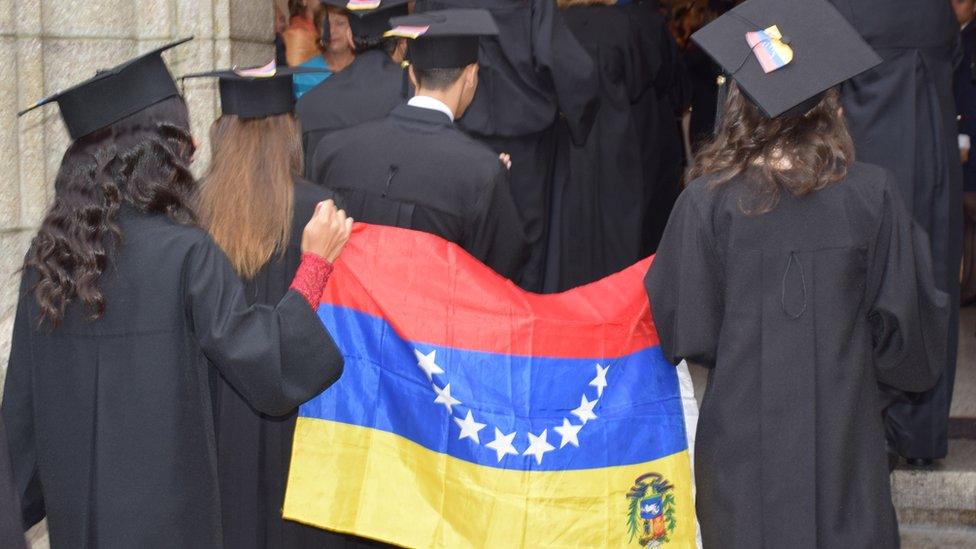

Those shortages are making it almost impossible for Gabriela, Paola and Ingeborg to graduate.
The three women have been studying for five and a half years and should have finished their five-year degree course by now.
But the shortage of medical supplies means they have not been able to do the practical work that is a key part of their degree.
No tools
The University of the Andes is a public university where students do not have to pay fees and all the supplies are provided to students at no cost, in theory at least.
"When we started studying, we were provided with the tools we needed," Ingeborg recalls.
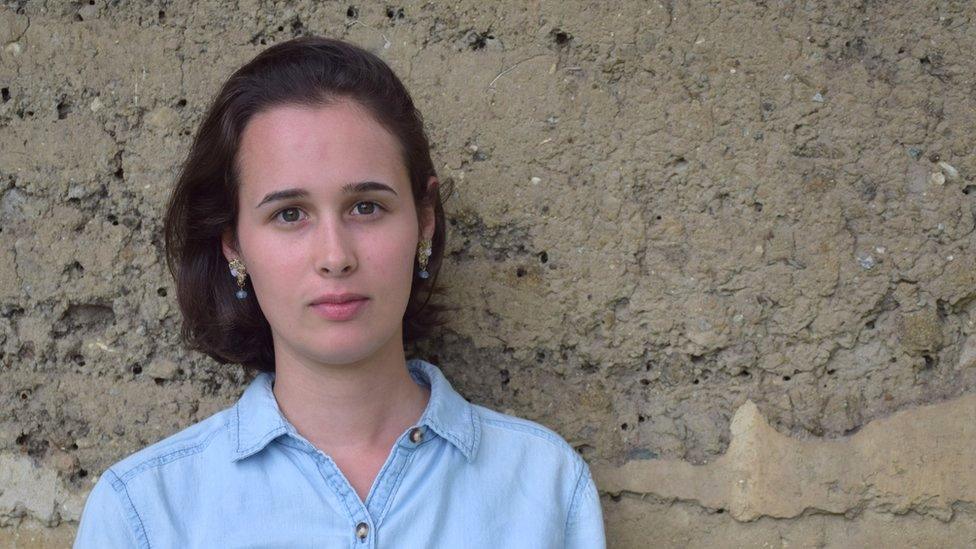
Ingeborg's parents are worried about her protesting but she says "everyone has to do their bit"
But because most of the medical kit is imported and the university is short of funds, the students have had to buy their own.
That worked for a while, but now the university's dental clinic, where the students practise on patients, is no longer able to function.
Gabriela says that they have done all they can to raise the necessary funds to keep the clinic going, not just for their own sake but for the patients, many of whom cannot afford private dental care.
"We tried to raise money, we've held charity races, we have held collections on public transport, we've even stood in the streets rattling the can," Ingeborg says.
And while people have been generous, the supplies the students need are almost impossible to come by now.
'Financially strangled'
Mario Bonucci is the rector of the University of the Andes. He explains that the university and its 60,000 students depend almost entirely on state funding and that they are being financially strangled.
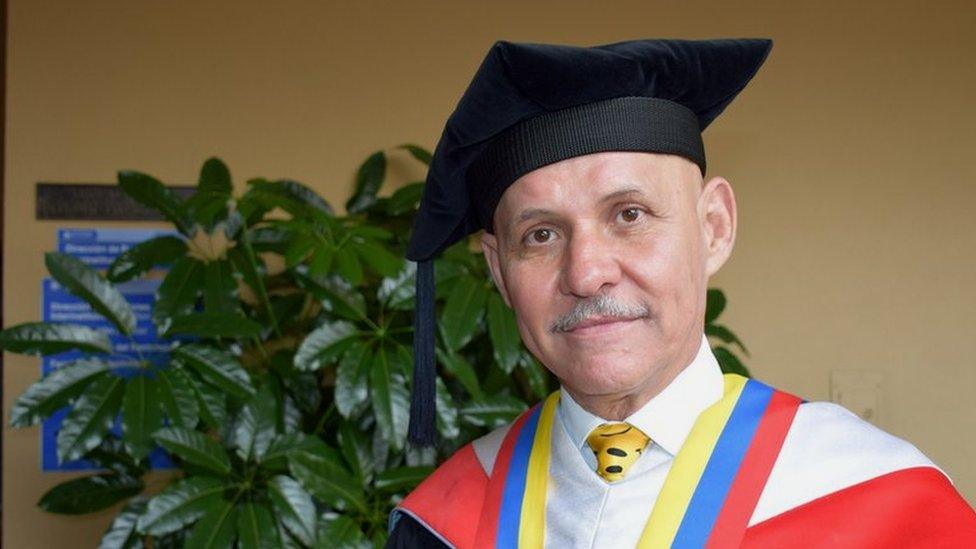
Mario Bonucci says the university has been a thorn in the side of the government
"We've only been given between 30-50% of the funds we need to survive," he says.
Mr Bonucci thinks the government is trying to bleed independent institutions like the University of the Andes dry because they are beyond the government's control.
"This is an institution where you can speak your mind freely without fear of repercussion and that's uncomfortable for this government."
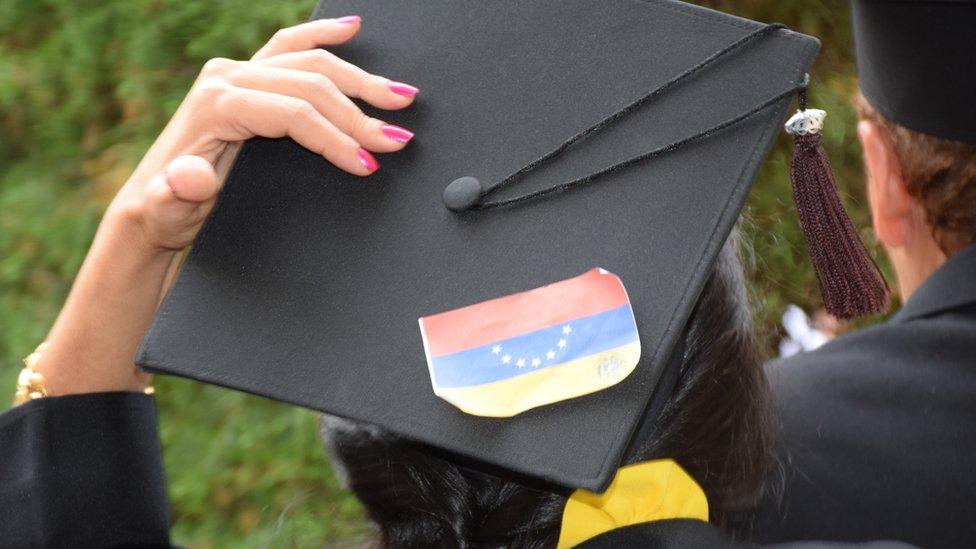
Students critical of the government showed their opposition by pinning an upside-down Venezuelan flag onto their mortar boards
The rector was elected by the students and makes no bones about his opposition to the government of President Nicolas Maduro, which he blames for the "exodus" of students and staff the university is suffering.
"Many are leaving because they don't see a future anymore," Mr Bonucci says.
"Take the dentistry school for example, where they just don't have supplies. That severely limits students' academic progress.
"That combined with the protests which lead to classes being cancelled make many students emigrate."
'One of a multitude'
Melissa Pena is one of them. "I'm one of the multitude of Venezuelans who've had to leave the country in search of a better future," she says speaking from Mexico City.
"Leaving the country in which you were born, where you grew up. is a difficult thing to do," she says.
Melissa studied dentistry along with Gabriela, Ingeborg and Paola at the University of the Andes but left before graduating.
"I had to leave because we didn't have the facilities to treat our patients, our teachers didn't have gloves, we couldn't even sterilise our instruments."
Her friends have decided to stay put for now, but rather than studying, they are out protesting.
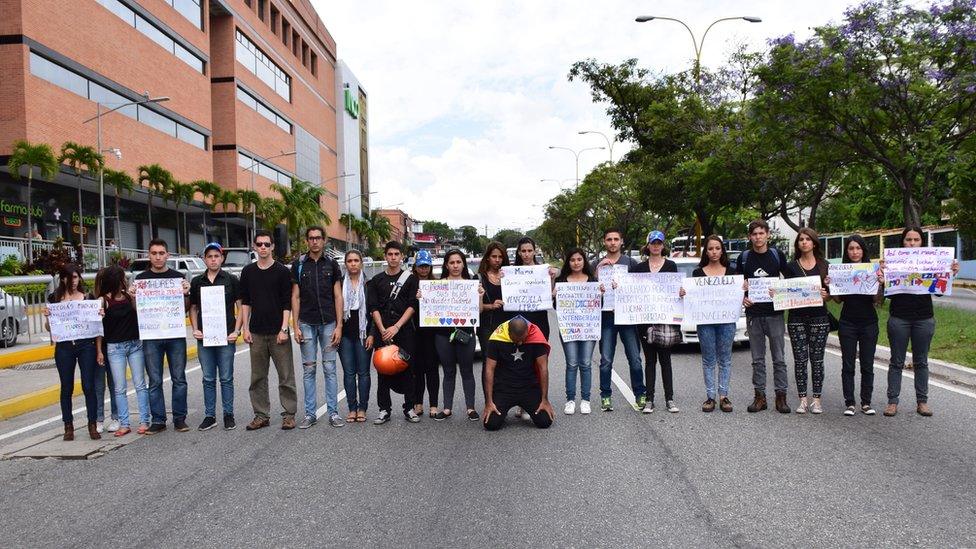
Dentistry students blocked a road in Mérida as part of one of their protests
"Our aim is to become dentists, that's why we're studying dentistry but we're also fighting so that no more students are forced to leave Venezuela," Ingeborg says referring to Melissa's decision to leave.
"We just couldn't sit calmly in class when down the road fellow youths were being killed in clashes with the security forces," Gabriela says referring to the anti-government protests in which dozens of people have been killed since 1 April.
"Dentistry students have historically been politically apathetic," Ingeborg explains.
'No turning back'
But as things got worse and six months would pass without them being able to do any of their practical work, the dentistry students started to organise.
Gabriela says that while their protest was at first focussed on the needs of their school, it has since turned more political and they have joined forces with the wider student movement, one of the key forces behind the anti-government protests.
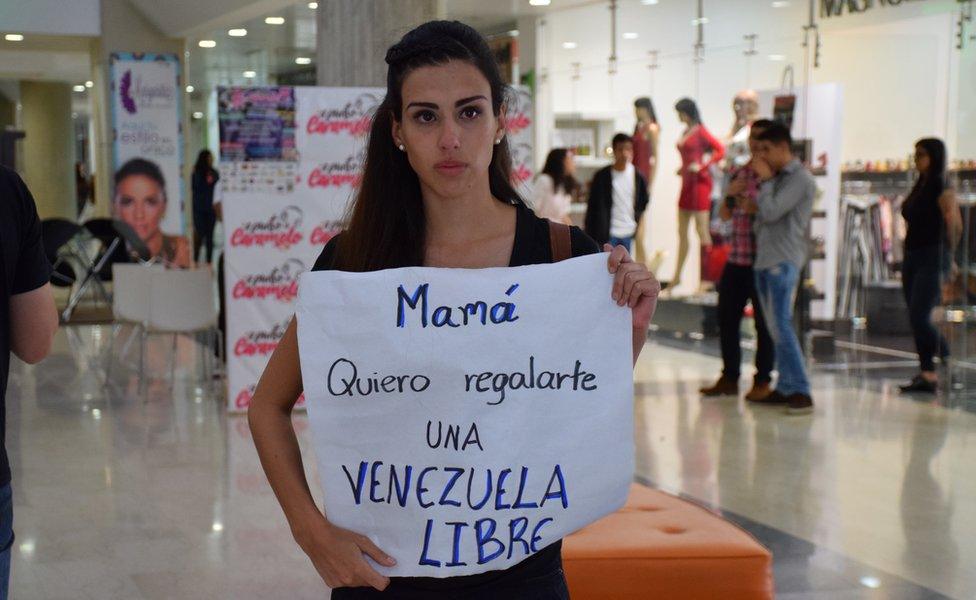
On Mother's Day, Gabriela protested carrying a sign reading "Mum, I want to give you a free Venezuela"
"I believe in this battle, I believe in what we're doing here and I believe we can bring about change," she says.
"So for now, I will stay. I want to graduate here, I want to live here and work as a dentist here, with my family here, but whether that is possible will depend on the outcome of our battle," Gabriela explains.
Paola agrees with her friend: "There is no turning back. It's now or never," she says defiantly. "We want to finish our studies, but we want to do so in a free Venezuela."
Melissa who left for Mexico in May, hopes that she will be able to join her friends again soon.
"It's my dream to return and to raise a family in a free and democratic Venezuela."
- Published24 May 2017
